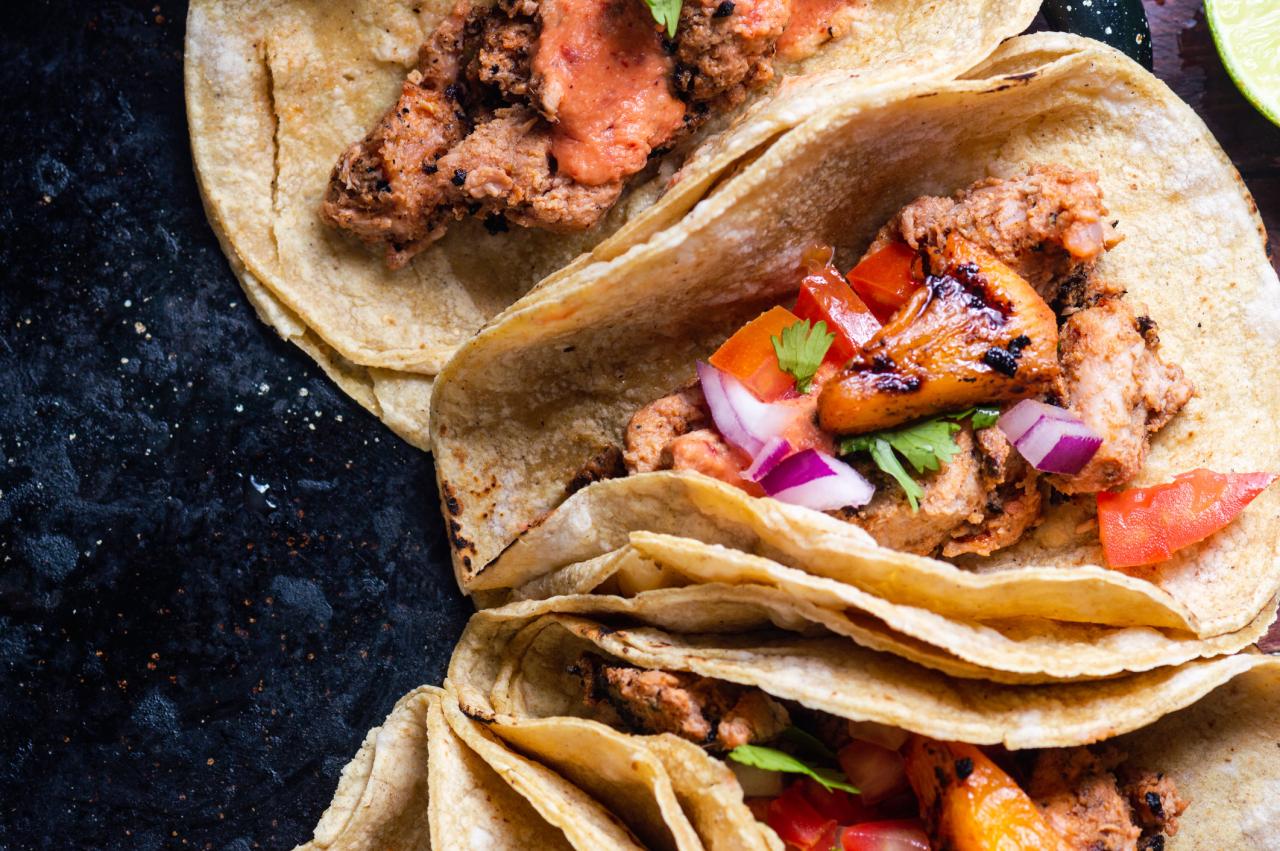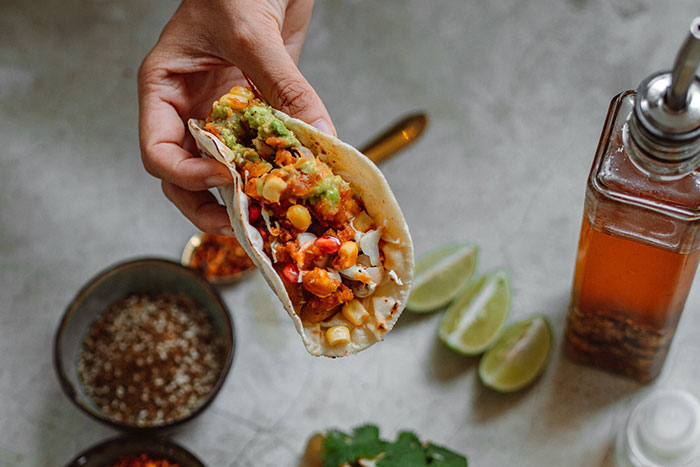
Embark on a gastronomic adventure with Local Food Experiences Abroad as we delve into the rich tapestry of culinary traditions worldwide. From cultural tourism to eco-friendly practices, explore how food connects us across different regions and time periods.
Discover the flavors, stories, and experiences that make traveling for food an unforgettable journey.
Cultural Tourism
Local food experiences play a crucial role in cultural tourism by providing travelers with a unique insight into the traditions, customs, and history of a particular destination. Through culinary exploration, visitors can immerse themselves in the local way of life, gaining a deeper understanding of the community they are visiting.Traditional dishes are an essential part of preserving cultural heritage during cultural tourism.
These recipes, often passed down through generations, hold a wealth of historical and cultural significance. By indulging in these authentic dishes, travelers not only savor the flavors but also connect with the heritage and identity of the local population.
Interconnection of Culinary Traditions and Cultural Practices
In different regions around the world, culinary traditions are deeply intertwined with cultural practices, reflecting the values, beliefs, and rituals of the community. For example, in Italy, the tradition of making pasta from scratch is not just a culinary art but a symbol of family unity and togetherness. Similarly, the use of spices in Indian cuisine goes beyond flavor enhancement to represent the diverse cultural tapestry of the country.
- The incorporation of specific ingredients in a dish may have religious or symbolic significance, such as the use of lotus seeds in Chinese cuisine during festivals and auspicious occasions.
- Cooking methods and utensils can also hold cultural importance, like the use of a tandoor oven in Indian cooking, which has been a part of the culinary heritage for centuries.
- Culinary festivals and food-related celebrations often serve as a platform to showcase cultural diversity and traditions, attracting tourists who are eager to experience the local way of life.
Eco-Tourism

The concept of eco-tourism focuses on promoting responsible travel practices that minimize the negative impact on the environment and support conservation efforts. Sustainable food practices play a crucial role in achieving these goals.Local food experiences can support eco-friendly initiatives in travel by emphasizing the use of seasonal, locally sourced ingredients. By sourcing ingredients from nearby farms and markets, travelers can reduce the carbon footprint associated with transporting food long distances.
Integration of Organic Farming and Local Sourcing
Organic farming and local sourcing are often integrated into food experiences for eco-tourists to showcase sustainable agricultural practices and support the local economy. Here are some examples of how this integration takes place:
- Farm-to-table dining experiences: Restaurants and accommodations partner with local farmers to provide fresh, organic produce directly to guests, reducing the need for packaging and transportation.
- Guided farm tours: Travelers have the opportunity to visit organic farms, learn about sustainable farming practices, and even participate in harvesting activities.
- Community-supported agriculture (CSA) programs: Travelers can support local farmers by joining CSA programs that provide a weekly supply of fresh, seasonal produce.
- Wild foraging excursions: Eco-tourists can learn about edible plants and mushrooms in the local environment, promoting a deeper connection to nature and reducing the demand for commercially produced food.
Culinary Travel
When it comes to traveling, food plays a significant role in the overall experience. Culinary travel, also known as food tourism, has gained immense popularity in recent years as more travelers seek to explore different cultures through their unique cuisines.
Role of Local Food Experiences
Local food experiences are a major draw for culinary travelers as they offer a glimpse into the authentic flavors and traditions of a destination. From street food markets to fine dining restaurants, exploring the local culinary scene allows travelers to connect with the culture and history of a place through its food.
Popular Culinary Travel Destinations
- Italy: Known for its pasta, pizza, gelato, and fine wines, Italy is a top culinary destination offering a diverse range of regional cuisines.
- Thailand: Renowned for its spicy and flavorful dishes, Thailand attracts food lovers with its vibrant street food culture and traditional cooking techniques.
- France: With its rich culinary heritage, France is a mecca for food enthusiasts seeking gourmet experiences, from buttery croissants to exquisite cheeses.
Food Tours and Cooking Classes
Food tours and cooking classes are popular activities that enhance the culinary travel experience by providing hands-on opportunities to learn about local ingredients, cooking methods, and culinary traditions. These immersive experiences offer a deeper insight into the food culture of a destination, allowing travelers to not only taste but also create authentic dishes.
Historical Travel

Exploring local cuisines can offer a unique window into the historical significance of travel destinations. Traditional dishes often have deep-rooted connections to historical events, reflecting the cultural evolution and influences that have shaped a region’s culinary identity.
Evolution of Traditional Dishes
Local dishes have evolved over time, adapting to changes in ingredients, cooking techniques, and cultural influences. For example, the popular Peruvian dish ceviche has roots dating back to ancient Incan civilizations, showcasing the fusion of indigenous ingredients with Spanish culinary traditions.
Historical Travel Sites and Local Food Experiences
Many historical travel sites now incorporate local food experiences into visitor attractions to provide a more immersive and authentic cultural experience. For instance, in Italy, tourists can visit ancient Roman ruins and then enjoy a traditional Roman feast at a nearby restaurant, complete with dishes inspired by recipes from centuries past.
Luxury Travel
Luxury travelers are increasingly seeking exclusive local food experiences as part of their upscale journeys. These discerning travelers are looking to immerse themselves in the culture of their destination through high-end culinary experiences that showcase the best of the region’s gastronomy.
Curated Culinary Experiences at Luxury Accommodations
Luxury accommodations are now offering curated culinary experiences for their guests to elevate their stay. From private cooking classes with renowned chefs to exclusive wine tastings featuring local vintages, these establishments are focusing on providing unique and memorable food experiences that cater to the sophisticated palates of luxury travelers.
Influence of Upscale Dining on Luxury Travel Perception
Upscale dining experiences play a crucial role in shaping the perception of luxury travel. Fine dining establishments that highlight local ingredients and traditional cooking techniques contribute to the overall luxurious experience of travelers. The attention to detail and exclusivity of these culinary experiences enhance the overall sophistication and prestige associated with luxury travel.
Budget Travel
Traveling on a budget doesn’t mean missing out on delicious local food experiences. In fact, it can be an opportunity to explore authentic cuisines without overspending.
Finding Affordable Street Food Options
When looking for affordable yet delicious street food options while traveling, consider exploring local markets, food stalls, and smaller eateries. These places often offer flavorful dishes at a fraction of the cost compared to restaurants.
- Opt for street food vendors recommended by locals or other travelers to ensure quality and authenticity.
- Look for bustling food markets where you can sample a variety of dishes without breaking the bank.
- Consider trying regional specialties that are budget-friendly, such as empanadas in South America or banh mi in Vietnam.
Cost-Effective Ways to Explore Local Cuisines
Exploring local cuisines on a budget during travel can be a rewarding experience that allows you to delve into the heart of a destination’s food culture without spending a fortune.
- Take advantage of food tours or cooking classes that offer hands-on experiences and insights into traditional dishes.
- Visit local markets to purchase fresh produce and ingredients for a DIY food tasting adventure or picnic.
- Seek out affordable eateries frequented by locals, where you can enjoy authentic flavors at reasonable prices.
Backpacking
Backpacking is a popular and budget-friendly way to travel, allowing individuals to immerse themselves in local cultures, including food experiences, in a more authentic way.
Exploring Local Food Cultures on a Budget
When backpacking, exploring local food cultures on a budget can be an enriching experience. Here are some tips to make the most of it:
- Opt for local markets and street food stalls where prices are usually more affordable compared to restaurants.
- Try to eat where the locals eat to get a genuine taste of the destination’s cuisine.
- Consider cooking your meals using fresh, local ingredients bought from markets or grocery stores.
Significance of Street Food Markets and Food Stalls
Street food markets and food stalls play a significant role in backpacking experiences as they offer:
- Authentic and diverse local dishes that are not always available in restaurants.
- An opportunity to interact with locals and learn more about their culinary traditions.
- A budget-friendly option to enjoy delicious meals while on the go.
Safety Tips for Trying Street Food while Backpacking
Trying street food can be a memorable experience, but it’s essential to prioritize safety. Here are some recommendations:
- Choose stalls with a high turnover of customers to ensure freshness.
- Observe the cleanliness of the food preparation area and utensils.
- Avoid eating raw or undercooked food to prevent foodborne illnesses.
Solo Travel
Solo travelers have a unique opportunity to immerse themselves in the local food culture in a way that may not be possible when traveling in a group. Dining alone allows for more flexibility in choosing where and what to eat, as well as the chance to interact more deeply with locals.
Advantages of Solo Travelers Experiencing Local Food
- Solo travelers can be more spontaneous in their dining choices, trying out small local eateries and street food stalls that may not accommodate larger groups.
- They have the freedom to eat at off-peak times, avoiding crowded tourist spots and experiencing a more authentic dining atmosphere.
- Solo travelers are more likely to engage in conversations with locals and restaurant staff, leading to meaningful cultural exchanges and insights into the destination.
Solo Travel Food Experiences
- During a solo trip to Thailand, I stumbled upon a family-run restaurant where the owner invited me to join them for a traditional meal. We shared stories and bonded over our love for food, creating a memorable cultural experience.
- In Italy, dining alone allowed me to savor each dish slowly, appreciating the flavors and textures without distractions. The chef even came out to chat with me, sharing the history and preparation behind each dish.
Navigating Dining Solo in Foreign Destinations
- Research local dining customs and etiquette before your trip to avoid any cultural faux pas.
- Opt for communal dining spaces like food markets or shared tables in restaurants to meet other solo travelers or locals.
- Consider joining a food tour or cooking class to connect with like-minded food enthusiasts and learn from local experts.
Group Travel
Group dynamics can significantly impact the exploration of local food experiences abroad. When traveling with a group, individuals may have different preferences, dietary restrictions, or levels of culinary adventurousness. This can make it challenging to choose where to eat and what to try, as compromises may need to be made to accommodate everyone’s tastes.
Strategies for Group Travelers
- Plan ahead and research local food options to find restaurants that offer a variety of dishes to suit different tastes.
- Consider sharing dishes family-style so that everyone can sample a bit of everything without committing to a full meal.
- Organize food tours or cooking classes as a group activity to experience local cuisine together and learn about the culture behind the dishes.
- Be open to trying new foods and encourage others in the group to step out of their comfort zones to fully immerse themselves in the culinary experience.
Benefits of Group Travel
- Group travel allows for cost-sharing, making it more affordable to dine at higher-end restaurants or try a wider variety of dishes.
- With more people, it’s easier to order and sample multiple dishes at a restaurant, providing the opportunity to taste a greater selection of local specialties.
- Group members can share their food discoveries and recommendations, leading to the discovery of hidden culinary gems that may not be found in guidebooks or online reviews.
- Traveling in a group can create a sense of camaraderie and shared memories around food experiences, enhancing the overall travel experience.
Closing Notes
As we wrap up our exploration of Local Food Experiences Abroad, we leave you with a taste of the diverse culinary landscape awaiting your next travel adventure. From historical insights to luxury indulgences, the world of food tourism offers endless possibilities for every palate.
FAQ Overview
How can local food experiences enhance cultural tourism?
Local food experiences provide a unique insight into the traditions and heritage of a region, offering a sensory journey for travelers.
Are there any specific culinary traditions that stand out in different regions?
Yes, each region has its own distinctive dishes and cooking methods that reflect the local culture and history.
What are some tips for budget travelers to enjoy local food experiences?
Look for street food markets, explore local eateries off the beaten path, and opt for cooking classes to savor authentic flavors without breaking the bank.
How can solo travelers make the most of local food experiences?
Solo travelers can engage in food tours, dine at communal tables, and interact with locals to immerse themselves in the culinary culture of a destination.
What are some strategies for group travelers to explore local dishes together?
Group travelers can opt for family-style dining, sample a variety of dishes, and partake in food tours to get a taste of the local culinary scene.





